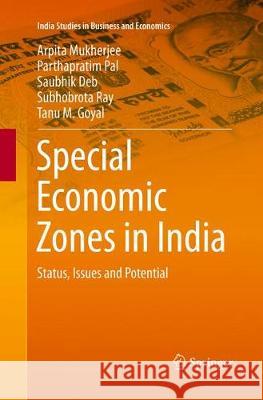Special Economic Zones in India: Status, Issues and Potential » książka
topmenu



ISBN-13: 9788132238430 / Angielski / Miękka / 2018 / 254 str.
ISBN-13: 9788132238430 / Angielski / Miękka / 2018 / 254 str.
Introduction.- SEZs in Select Countries: A Comparison with India.- SEZs in India: Evolution, Policy Framework and Current Status.- Performance of SEZs.- Quality of the Business Environment: SEZs vs. DTAs.- Special SEZs for Services: India’s Experiences and the Way Forward.- SEZs and other Industrial Clusters: Why Incentives have not been Successful in Developing Manufacturing in India?.- SEZs in the Multilateral Trading System.- Special Economic Zones and Regional Trade Agreements.- Challenges Faced by SEZs in India and the Way Forward.
This book examines India’s ten years of experience developing Special Economic Zones (SEZs) and the performance of SEZs in the context of India’s growing international engagement, its endeavours to attract domestic and foreign investment in manufacturing and services and its aim to increase and diversify exports of goods and services. SEZs are industrial enclaves/clusters within a country that receive certain incentives and business facilitation benefits that are not generally available to the rest of the country. To facilitate private and foreign investment in SEZs, India introduced the SEZ policy in 2000, which was followed by the SEZ Act in 2005. After ten years under the Act, India now has one of the largest number of approved SEZs in the world and its SEZ policy remains heatedly debated, with a number of studies arguing both for and against it. Given this background, the book also identifies the challenges faced by SEZs in India and offers policy recommendations on how to make the SEZs an engine for India’s economic growth and development that can more effectively link the country’s manufacturing and services sectors to global value chains.
1997-2026 DolnySlask.com Agencja Internetowa







